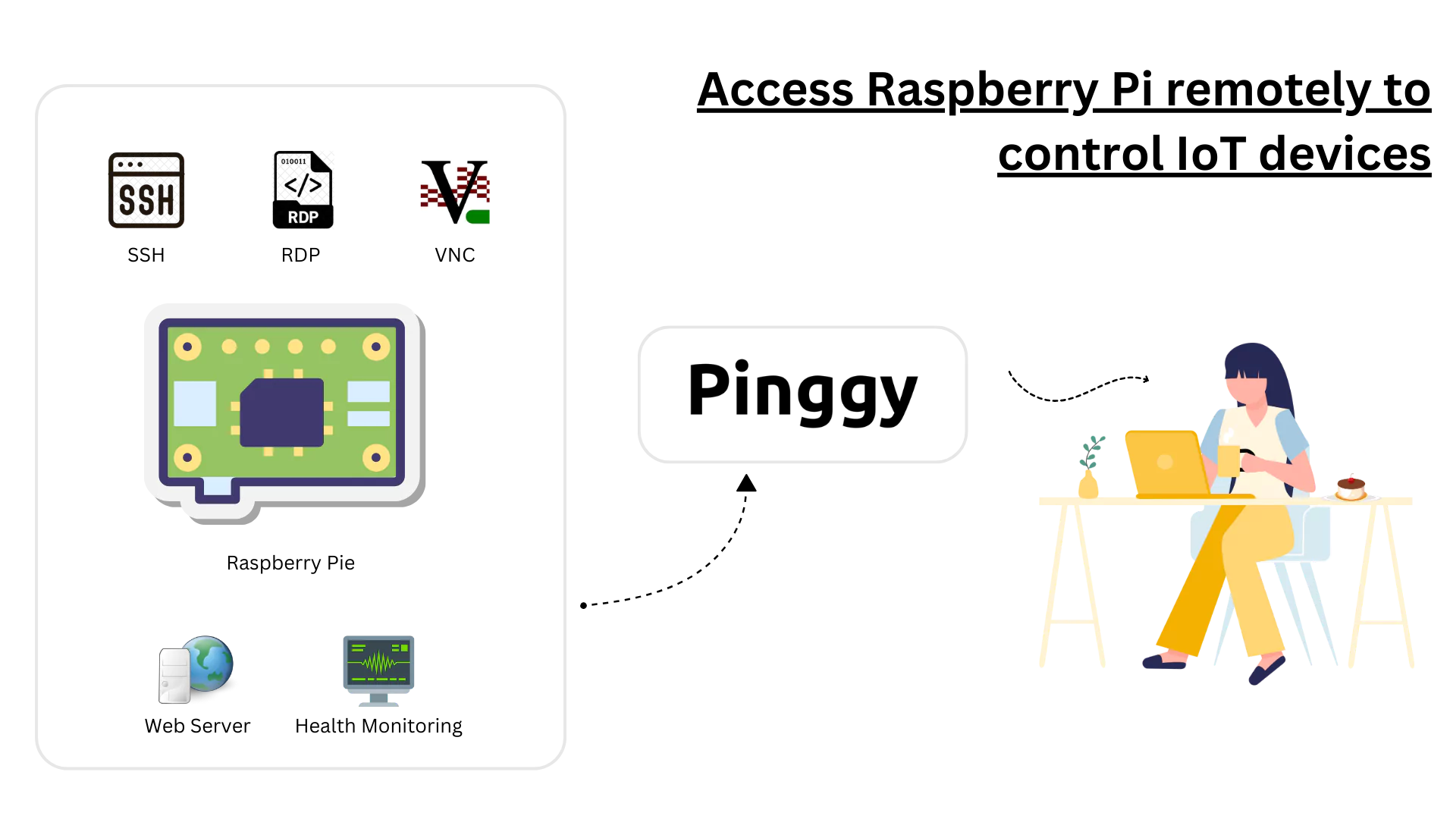Managing Raspberry Pi devices remotely is now easier than ever with the advent of remote IoT management platforms. These platforms provide a seamless way to monitor, configure, and troubleshoot Raspberry Pi devices without needing physical access. Whether you're managing a single Raspberry Pi for personal projects or overseeing a fleet of devices for industrial applications, remote IoT management platforms simplify the process significantly. They enable you to streamline workflows, reduce downtime, and optimize performance, all while ensuring secure and reliable access.
With the increasing popularity of Raspberry Pi in IoT applications, the demand for efficient remote management solutions has grown exponentially. Remote IoT management platforms not only allow you to handle device configurations but also help in automating routine tasks, monitoring system health, and even deploying software updates remotely. This ensures that your Raspberry Pi devices remain operational and efficient, even when they're located miles away from you.
The ability to manage Raspberry Pi remotely with a remote IoT management platform opens up a world of possibilities. From smart home automation to large-scale industrial deployments, these platforms empower users to harness the full potential of their Raspberry Pi devices. By leveraging cloud-based tools, real-time analytics, and secure communication protocols, you can ensure that your devices are always running optimally, no matter where they are located.
Read also:Mimi Lieber Unveiling The Story Behind The Name
- What is Remote IoT Management?
- Why Use a Platform for Raspberry Pi Remote Management?
- How to Choose the Right Platform for Management of Raspberry Pi Remotely?
- Key Features of Remote IoT Management Platforms
- Is Your Raspberry Pi Secure When Managed Remotely?
- How to Get Started with Remote IoT Management?
- Benefits of Management of Raspberry Pi Remotely with Remote IoT Management Platform
- What Are the Common Challenges in Remote Management?
- Real-World Use Cases of Raspberry Pi Remote Management
- What Does the Future Hold for Remote IoT Management?
What is Remote IoT Management?
Remote IoT management refers to the process of controlling, monitoring, and maintaining IoT devices, such as Raspberry Pi, from a centralized platform without the need for physical access. This approach is particularly useful for managing devices that are deployed in remote or inaccessible locations. By using a remote IoT management platform, users can perform tasks such as device configuration, software updates, and troubleshooting from anywhere in the world.
Why Use a Platform for Raspberry Pi Remote Management?
Using a dedicated platform for the management of Raspberry Pi remotely offers several advantages. These platforms are designed specifically to address the unique challenges of IoT device management, ensuring that your devices remain secure, efficient, and up-to-date. They also provide tools for automating repetitive tasks, reducing the workload on administrators and minimizing the risk of human error.
How to Choose the Right Platform for Management of Raspberry Pi Remotely?
Selecting the right platform for remote management is crucial to ensuring that your Raspberry Pi devices perform optimally. Here are some factors to consider:
- Compatibility with Raspberry Pi models
- Security features, such as encryption and authentication
- Scalability to support multiple devices
- User-friendly interface for easy navigation
- Integration with other tools and systems
Key Features of Remote IoT Management Platforms
Remote IoT management platforms come with a variety of features that make them indispensable for managing Raspberry Pi devices. These include:
- Real-time monitoring and alerts
- Remote access and control
- Automated software updates
- Data analytics and reporting
- Device grouping and organization
Is Your Raspberry Pi Secure When Managed Remotely?
Security is a top concern when managing devices remotely. Remote IoT management platforms address this by implementing robust security measures, such as end-to-end encryption, two-factor authentication, and role-based access control. These features ensure that only authorized users can access and manage your Raspberry Pi devices, protecting them from unauthorized access and cyber threats.
How to Get Started with Remote IoT Management?
Getting started with remote IoT management is straightforward. Begin by selecting a platform that meets your requirements and is compatible with your Raspberry Pi devices. Next, follow these steps:
Read also:Discovering The Musical Legacy Of Julio Iglesias Jr
- Register for an account on the platform
- Install the necessary software or agents on your Raspberry Pi
- Connect your devices to the platform
- Configure settings and permissions
- Start monitoring and managing your devices
Benefits of Management of Raspberry Pi Remotely with Remote IoT Management Platform
The management of Raspberry Pi remotely with a remote IoT management platform offers numerous benefits, including:
- Reduced operational costs
- Improved device uptime and performance
- Enhanced security and compliance
- Scalability for growing deployments
- Access to real-time data and insights
What Are the Common Challenges in Remote Management?
While remote IoT management platforms offer many advantages, there are also challenges to consider. These include connectivity issues, device compatibility, and the need for regular updates. However, with the right platform and best practices in place, these challenges can be effectively mitigated.
Real-World Use Cases of Raspberry Pi Remote Management
Raspberry Pi devices are used in a variety of industries, from agriculture to healthcare. Remote IoT management platforms enable these devices to be deployed and managed efficiently. For example, in agriculture, Raspberry Pi devices can monitor soil conditions and weather data, while in healthcare, they can track patient vitals and manage medical equipment.
What Does the Future Hold for Remote IoT Management?
The future of remote IoT management looks promising, with advancements in AI, machine learning, and edge computing set to enhance the capabilities of these platforms. As more devices are connected to the internet, the demand for efficient and secure remote management solutions will continue to grow, making the management of Raspberry Pi remotely with remote IoT management platforms even more critical.

